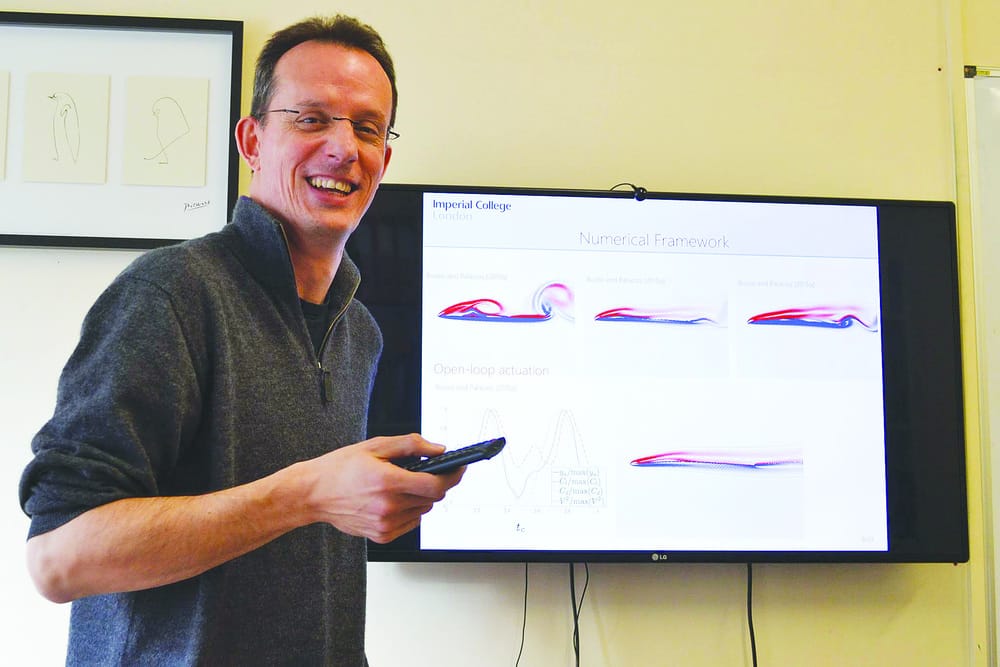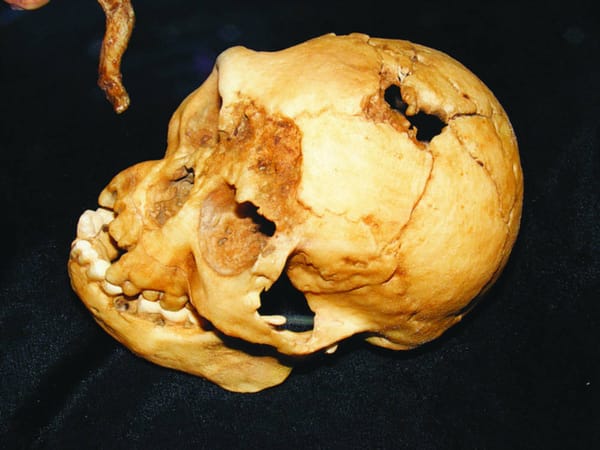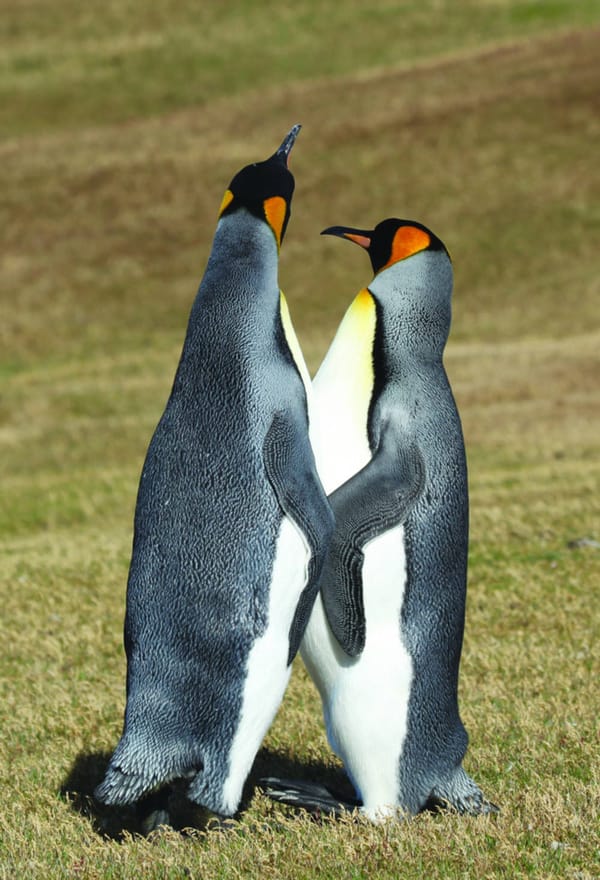This week’s science picture
Dr Rafael Palacios giving us a little demo of his modelling.

Unmanned micro air vehicles (MAVs) are being used for a range of applications, from surveying dangerous areas to delivering packages. So far however, long range and high manoeuvrability are mutually exclusive. A collaboration of Imperial with Southampton, is developing a MAV prototype with bat-inspired wings. The wings use polymers situated in the membranes, stiffening and relaxing in response to the electrical current running through them. According to Dr Rafael Palacios, from the department of Aeronautics at Imperial, ‘‘The MAVs will be able to travel longer distances in tighter spaces with high controllability, just like a bat’’ making them and their production more economical. The aim is to get the bat-inspired technology to fly a distance of 30 or 40 miles. However, this requires a lot more work as they will need a battery or chemical device. In the future these MAVs could rival the 10 mile range of Amazon drones.



